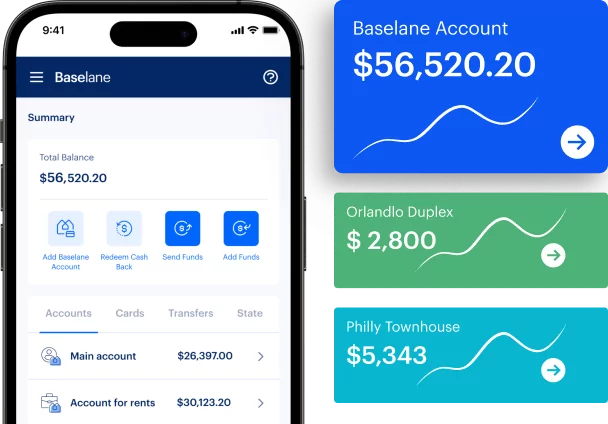Automated Rent Collection, without the stress
Never chase down checks or late rent payments again. Accept rent by ACH or card. Automated payments, fees & reminders.
- Simple to set up for landlords and tenants.
- Fast payments directly into your bank account
- Automated reminders and late fees

You Need a Rent Collection Platform That Works as Hard as You Do

Stress-Free Rent Collection
Save hours each month. No more chasing down tenants for cash or checks, and no more manual tracking with Venmo or Zelle.

Get Paid on Time
Get paid on time and apply late fees without lifting a finger. We send automated payment reminders to your tenants so you don’t have to.
Fast Payouts
Payments are deposited directly into your bank account within 2-5 days. Receive automated alerts once rent is paid.
Easy for Tenants
Modern platform for tenants to pay rent on any device. Tenants can pay by ACH bank transfer or debit/credit card, and can easily enroll in auto-pay.
Simple to Set Up
Simple to set up for landlords and tenants. Getting started takes less than 5 minutes. Our live support team is always here to help.
Introducing Baselane Quickpay
Baselane QuickPay gives you faster and more reliable rent payments - deposited directly into your bank account as soon as the next day.
- Next-day rent payments
- Waived ACH fees
- Up to 60% faster than standard processing

How it works
Easy for you, easy for your tenant.
Set up lease.
Provide your unit address, rent amount, tenant information, and timing of payments.

Invite your tenant.
It takes less than 5 minutes for tenants to set up rent payments on their mobile phone or desktop. Our live support team is always here to help.

Get paid.
Payments are deposited directly into your bank account within 2-5 days. Easily view payment history and outstanding rent.

Why Landlords choose Baselane for Rent Collection
Traditional Rent, Collection Tools
Built for Online Rent Collection Directly Into Your Bank Account
Easy Sign-up for Tenants and Landlords
Fast Payments: Get Paid in 2-5 Days
Tenant Payment Options
ACH, Debit, Credit (2.99% fee)
Manual payment via cash/check; Some platforms only allow credit card with 3% fee
Tenant Auto-Pay
High Daily Payment Limits
Venmo & Zelle limited at $2,000/day
Automated Payment Notifications & Reminders
Automated Payment History and Tracking
Automated Late Fee Settings
Dedicated Customer Support
Simplify your rental property finances today!


Setting up the rent collection on Baselane was so smooth! I’m a first time landlord and didn’t know where to start but I found Baselane and the rest is history!
Susan P. Austin, TX
I love collecting rent on Baselane. I previously used Zelle, but couldn’t collect rent directly into business accounts. I’ve solved this problem with Baselane!
Tim R. San Jose, CA
I love the automation of Baselane’s rent collection offering. It’s so easy to use and saves me the hassle of chasing after tenants each month for rent payments!
John H. Philadelphia, PA